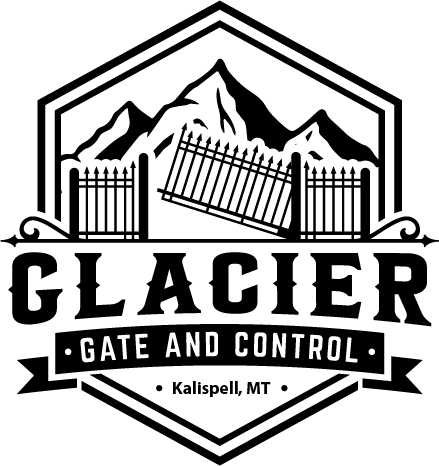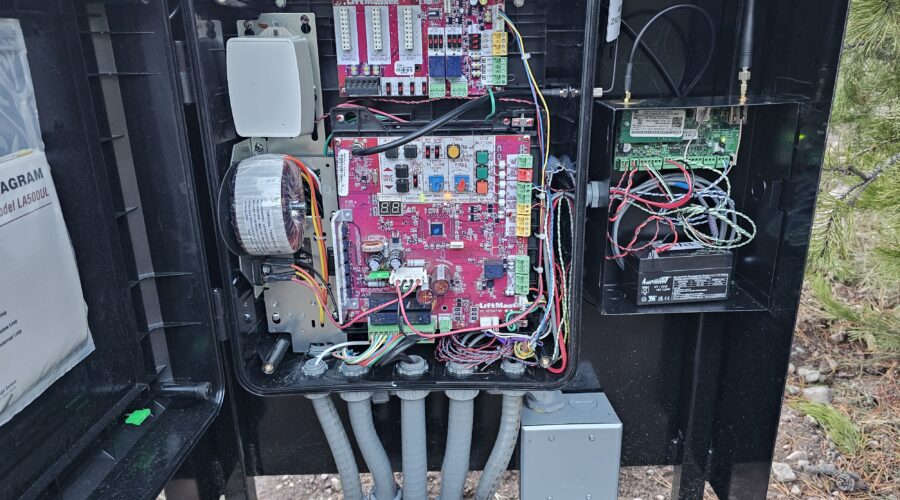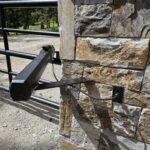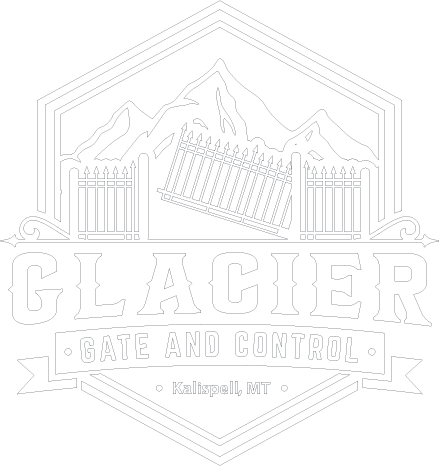Installing an Electric Driveway Gate in an HOA Community
Enhancing Neighborhood Security and Aesthetics
By Installing an Electric Driveway Gate in your HOA Community

Introduction: In today’s fast-paced world, ensuring the safety and security of our communities is paramount. Homeowners’ associations (HOAs) play a crucial role in maintaining and enhancing the quality of life within their neighborhoods. One effective way to achieve this is by installing an electric driveway gate. In this blog post, we’ll delve into the process of adding an electric driveway gate to our HOA neighborhood, exploring its benefits, considerations, and the steps involved.
Identifying the Need: Every community has its unique set of challenges and requirements. For an HOA neighborhood, increasing security and controlling access are key concerns. Many recognized that installing an electric driveway gate would not only address these issues but also add a touch of elegance to a community’s entrance.
Planning and Research: Before embarking on such a significant project, thorough planning and research are essential. This involved assessing various gate styles, materials, and automation options to find the best fit for a neighborhood’s aesthetics and needs. Consulting with experts in gate installation and HOA regulations help make informed decisions.
Engaging the Community: Effective communication and community involvement are vital in any HOA project. Initiate discussions and hold meetings to inform residents about the proposed electric driveway gate and gather their feedback. Addressing concerns and garnering support ensure a smoother transition throughout the installation process.
Securing Approvals and Permits: Compliance with local regulations and obtaining necessary permits are crucial steps in the installation process. Working closely with your HOA board and local authorities, to navigate the permit application process and ensure adherence to zoning laws and safety standards.
Selecting a Reliable Contractor: Choosing the right contractor is paramount to the success of any construction project. We help customers conduct thorough research, have credentials for review, and can handle all aspects of your specialized in gate installation. Prioritizing quality, reliability, and experience is a reason customers usually site when choosing Glacier Gate and Control.
Installation and Testing: Once all preparations are complete, the installation process can begin. Your chosen contractor will have coordinated the installation efficiently, ensuring minimal disruption to residents. Rigorous testing of the electric gate system is then conducted to verify its functionality, safety features, and integration with existing infrastructure.
Maintenance and Ongoing Management: Maintaining the electric driveway gate is essential to prolong its lifespan and ensure optimal performance. Implementing a proactive maintenance plan, including regular inspections and repairs, helps prevent potential issues and keeps the gate operating smoothly. Additionally, establishing clear guidelines for gate usage and access control contributes to effective management and security within the community.
Conclusion: The installation of an electric driveway gate in an HOA neighborhood significantly enhances both security and aesthetics, providing residents with peace of mind and a sense of pride in their community. By following a well-planned process, engaging residents, and working collaboratively with experts, you can successfully implement this valuable addition to your neighborhood infrastructure. As you continue to prioritize safety and quality of life, your electric driveway gate stands as a testament to the power of collective effort in creating thriving and secure communities.
What’s the best way to power a gate?
What's Better?
Battery Operated, Solar Operated, and Powered Gates

In the world of home security and convenience, gated entryways have become increasingly popular. They not only enhance the aesthetics of your property but also provide an added layer of security and control over who enters your premises. As technology advances, the debate between battery-operated and solar-operated gates has become a focal point for homeowners looking to make the best choice for their needs. Let’s delve into the pros and cons of each to help you decide which option suits you best.
Battery Operated Gates:
Pros:
- Ease of Installation: Battery-operated gates typically require less installation time and effort compared to their solar counterparts. They don’t rely on external factors such as sunlight availability, making them suitable for various locations.
- Versatility: These gates are versatile and can be installed in areas with limited access to sunlight or where local regulations restrict solar panel installations.
- Lower Initial Cost: Battery-operated gates often have a lower initial cost compared to solar-operated ones, making them an attractive option for those on a tighter budget.
- Reliability: With advancements in battery technology, modern batteries used in these gates can provide reliable operation for extended periods between charges.
Cons:
- Maintenance: Regular maintenance is required to ensure the batteries remain charged and operational. This might include periodic battery replacement, depending on usage and battery life.
- Environmental Impact: Batteries, especially lead-acid ones commonly used in these gates, pose environmental challenges when disposed of improperly. Proper recycling and disposal measures are essential.
- Dependence on Power Supply: Without a backup power source or a means to recharge the batteries during power outages, the gate may become inoperable, compromising security and convenience.
Solar Operated Gates:
Pros:
- Environmentally Friendly: Solar-operated gates harness energy from the sun, making them a sustainable and environmentally friendly option. They reduce reliance on non-renewable energy sources and help lower your carbon footprint.
- Cost Savings Over Time: While the initial investment may be higher, solar-operated gates offer long-term cost savings by eliminating electricity bills associated with powering traditional gates.
- Independence from Power Grid: Solar-operated gates operate independently of the power grid, making them ideal for remote locations or areas prone to power outages. They ensure continuous operation without interruptions.
- Minimal Maintenance: Once installed, solar-operated gates require minimal maintenance. Regular cleaning of solar panels to ensure maximum efficiency is typically the only upkeep required.
Cons:
- Initial Cost: Solar-operated gates generally have a higher upfront cost due to the expense of solar panels and associated equipment. However, this cost can be offset over time by energy savings.
- Dependence on Sunlight: Cloudy days or shaded areas may affect the gate’s performance as they rely on sunlight to generate power. In regions with limited sunlight, supplementary power sources may be necessary.
- Complex Installation: Installation of solar panels and associated components can be more complex compared to battery-operated gates, requiring professional expertise.
Powered Gates:
Pros:
- Consistent Power Supply: Powered gates rely on a consistent power supply, ensuring reliable operation without the need for battery charging or sunlight.
- Efficiency: These gates operate consistently regardless of weather conditions or time of day, providing uninterrupted access control.
- Ease of Maintenance: Powered gates often require less maintenance compared to battery-operated gates, with no need for battery replacements or solar panel cleaning.
Cons:
- Dependency on Power Grid: Powered gates are vulnerable to power outages, which can disrupt operation and compromise security.
- Higher Operational Costs: Electricity bills associated with powered gates may accumulate over time, potentially leading to higher operational costs compared to solar-operated alternatives.
- Limited Placement Options: Powered gates require access to a power source, limiting placement options compared to battery-operated or solar-operated gates.
Conclusion:
The choice between battery-operated, solar-operated, and powered gates depends on various factors such as location, budget, environmental concerns, and personal preferences. Each option offers unique advantages and challenges, catering to different needs and priorities.
If you prioritize ease of installation, versatility, and lower initial cost, a battery-operated gate might be the right choice. For those focused on sustainability, long-term cost savings, and independence from the power grid, a solar-operated gate could be ideal. Meanwhile, powered gates offer consistent operation and minimal maintenance, albeit with dependencies on a reliable power supply.
Ultimately, investing in a gated entryway enhances security, adds value to your property, and provides peace of mind. Consider your specific requirements and preferences carefully to choose the option that best fits your needs. Click here to see examples of different gates.









